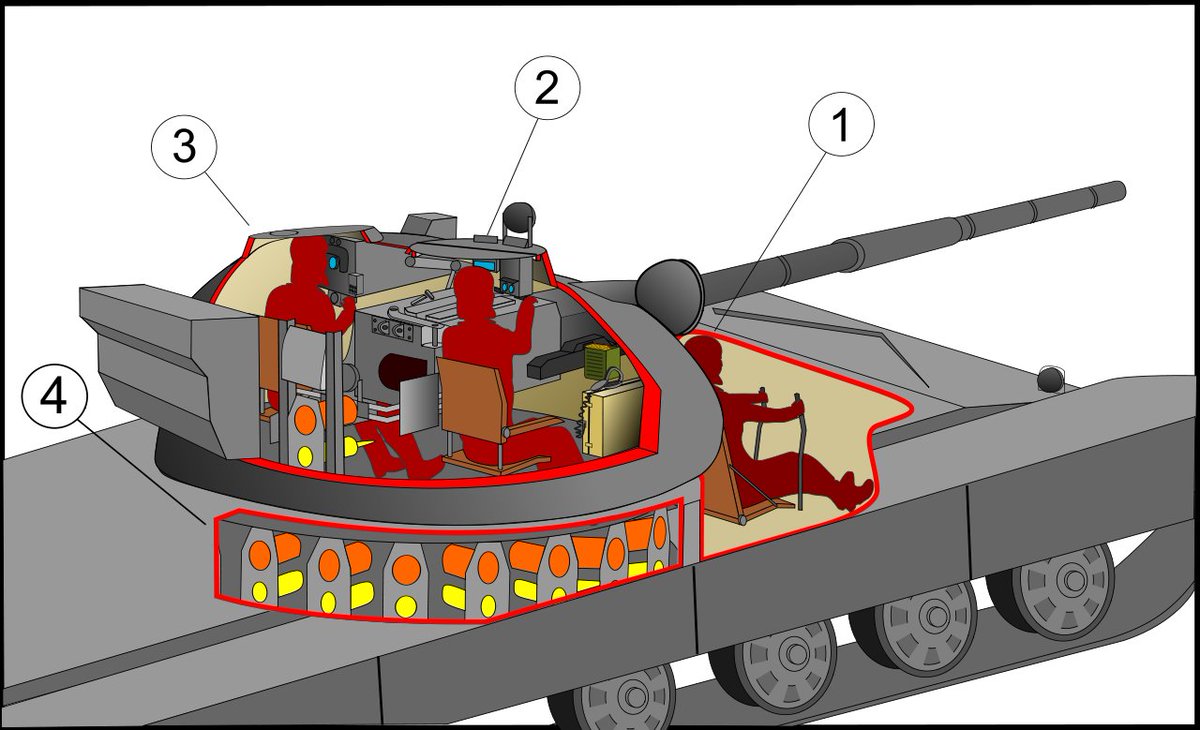
Russia is running out of tanks. That's the inescapable conclusion from reports that it's transporting some of its reported 2,500 stored T-62s to support its war in Ukraine. What does this mean logistically and operationally? A 🧵 with some observations and deductions. /1 
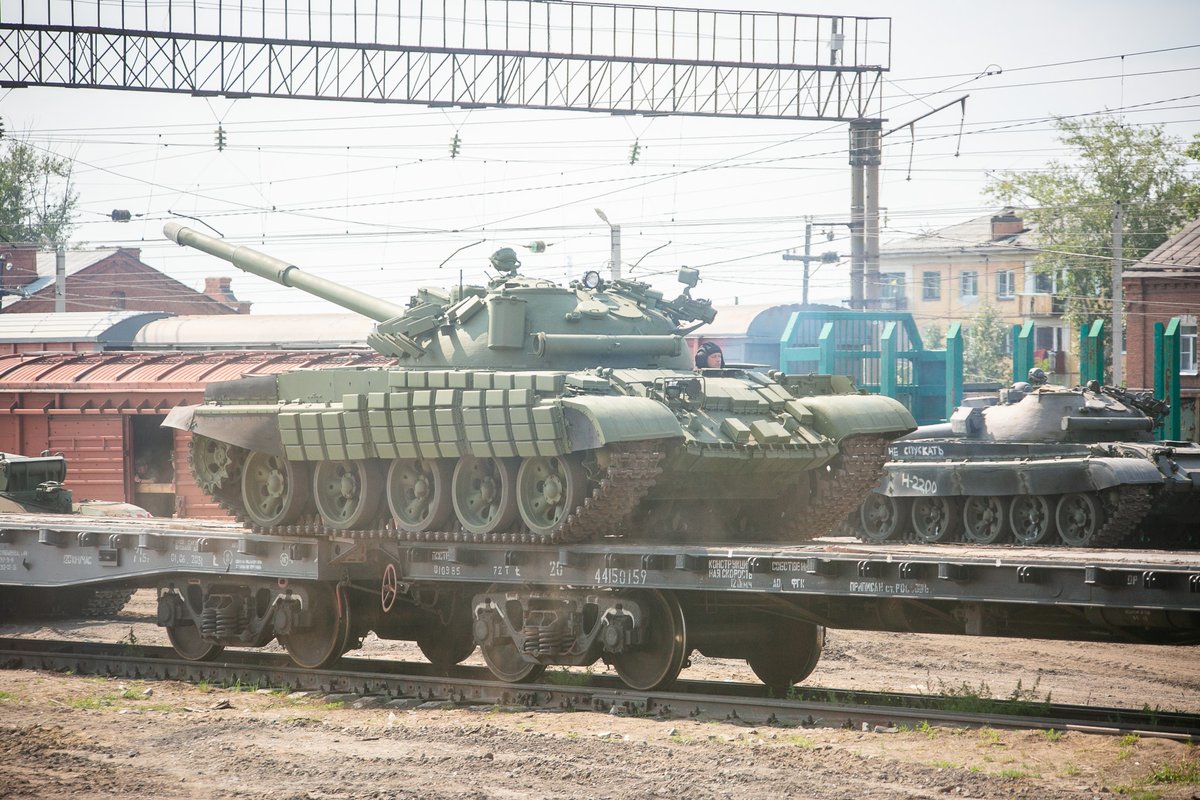
The T-62 is a very old tank indeed. Designed in the late 1950s to compete with the UK Chieftain and US M60, some examples in Russian storage bases are likely to be approaching 60 years old. Production ceased in 1975 after which it was largely relegated to reserve service. /2 
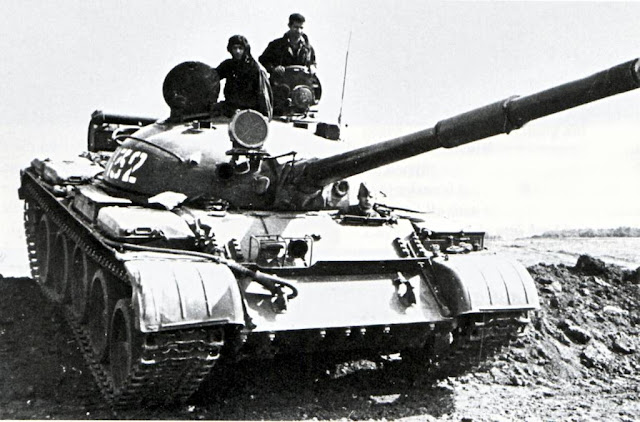
Having said that, it's unlikely that Russia is reactivating its very oldest T-62s. It's more likely that the tanks being transported to Ukraine are T-62Ms, modernised in 1983 with protection and mobility improvements and a new fire control system. /3 
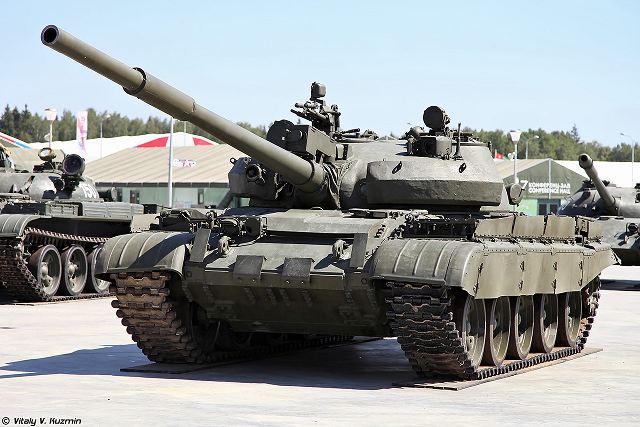
@John_A_Ridge has a useful thread here on some of the implications of this development, which is worth reading. Let's first consider how the Soviet Union/Russia has used T-62s operationally in the past. /4
https://twitter.com/John_A_Ridge/status/1528907746971684864
T-62s were heavily used in Afghanistan in the 1980s and Chechnya in the 1990s, suffering heavy losses - according to US sources, nearly 325 T-62s were lost in the Soviet-Afghan war. Russia last used T-62s in combat in 2008 during the brief war in Georgia. /5 
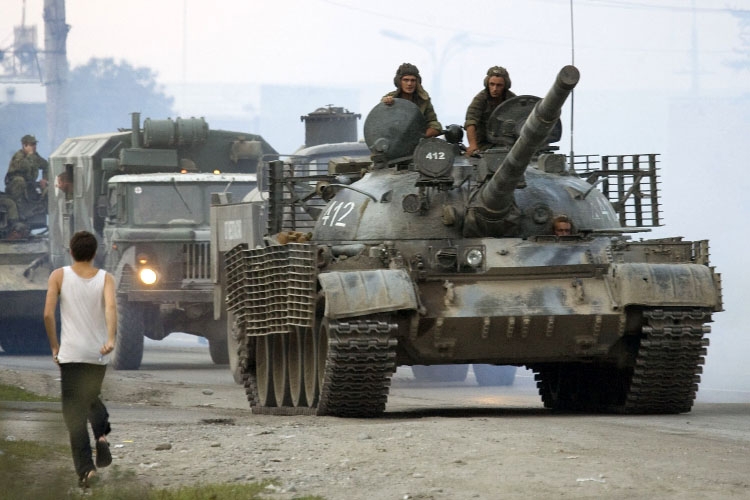
Russia renovated an estimated 60-120 T-62s to participate in the 2018 Vostok military exercise held in Siberia and the Russian Far East. A Russian blogger has posted an interesting photo essay of the renovation work being carried out at Arseniev. /6
altyn73.livejournal.com/1318124.html
altyn73.livejournal.com/1318124.html
Some of these T-62s were likely subsequently shipped to Syria to replace the Syrian Army's substantial war losses. Several thousand more T-62s are still in use around the world. 900 were reportedly designated in Russia as a mobilisation reserve. /7
oryxspioenkop.com/2017/02/replen…
oryxspioenkop.com/2017/02/replen…
The Ukrainians haven't specified how many Russian T-62s are being reactivated. Many stored units are likely in a very poor condition. In the thread linked below, I highlighted a range of problems including storage conditions, theft and corruption. /8
https://twitter.com/ChrisO_wiki/status/1527405172355366912
In particular, it's very unlikely that stored T-62s have modern optics or fire control systems. Russia may have cannibalised unserviceable examples of more modern stored tanks such as T-72s or T-80s to retrofit their systems onto the T-62s it's reactivating. /9
Russia certainly wouldn't be doing this if it wasn't losing huge numbers of T72s/80s/90s. Ukraine claims that Russia has lost over 1,200 tanks. A plot of claimed losses shows how unsustainable this is - as many claimed lost in 1 month as in the entire Soviet-Afghan war. /10 
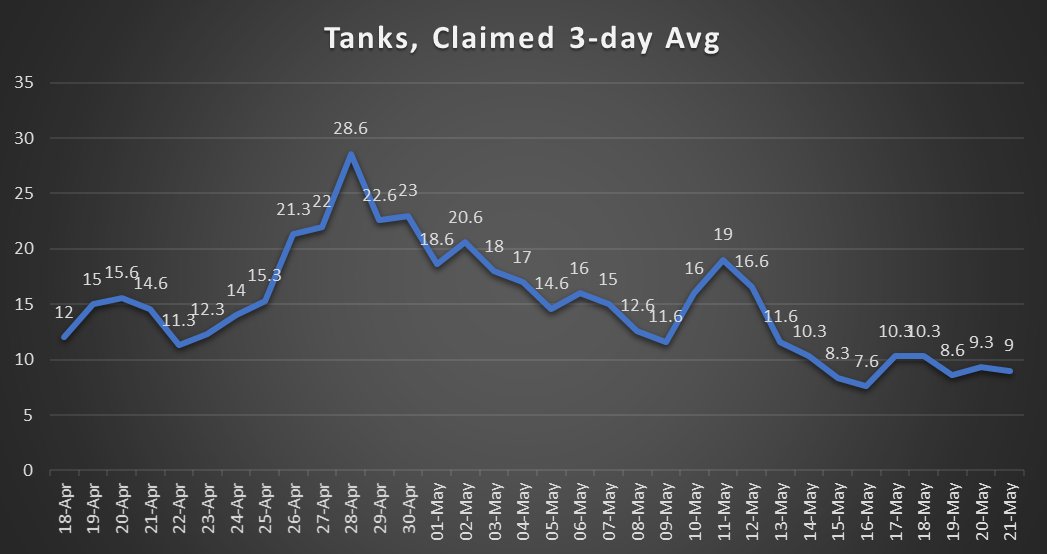
T-62s are inferior in every way to more modern Russian/Soviet tanks. They have a smaller gun (115mm vs 125mm), thinner armour, no autoloader, obsolete fire control systems and radios, no night combat capabilities, lower speeds and a slower rate of fire. /11 
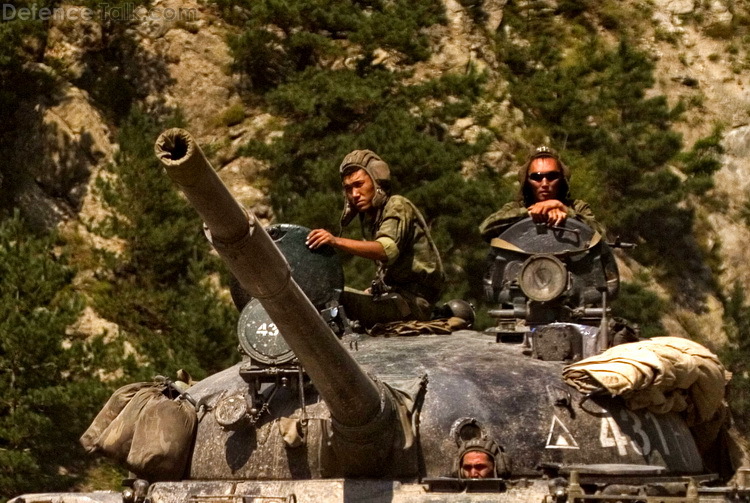
The T-62 also presents significant logistical difficulties. The T-72, T-80 and T-90 all have a shared heritage with common parts and ammunition and a high degree of interoperability. The T-62 has a completely different lineage, descending from the venerable T-55. /12 

This means that Russia will find it far harder to maintain, repair and resupply T-62s in the field. The tanks will need their own supply chain of ammunition and parts, completely separate from that of the T-72/80/90. With logistics under strain, this will be a challenge. /13
In the anti-tank missile-saturated environment of Ukraine, where modern T-90s have proven vulnerable, T-62s are likely to be death traps for their crews. They are unlikely to resist even old anti-tank missiles and have horribly exposed ammunition stowage within the hull. /14 
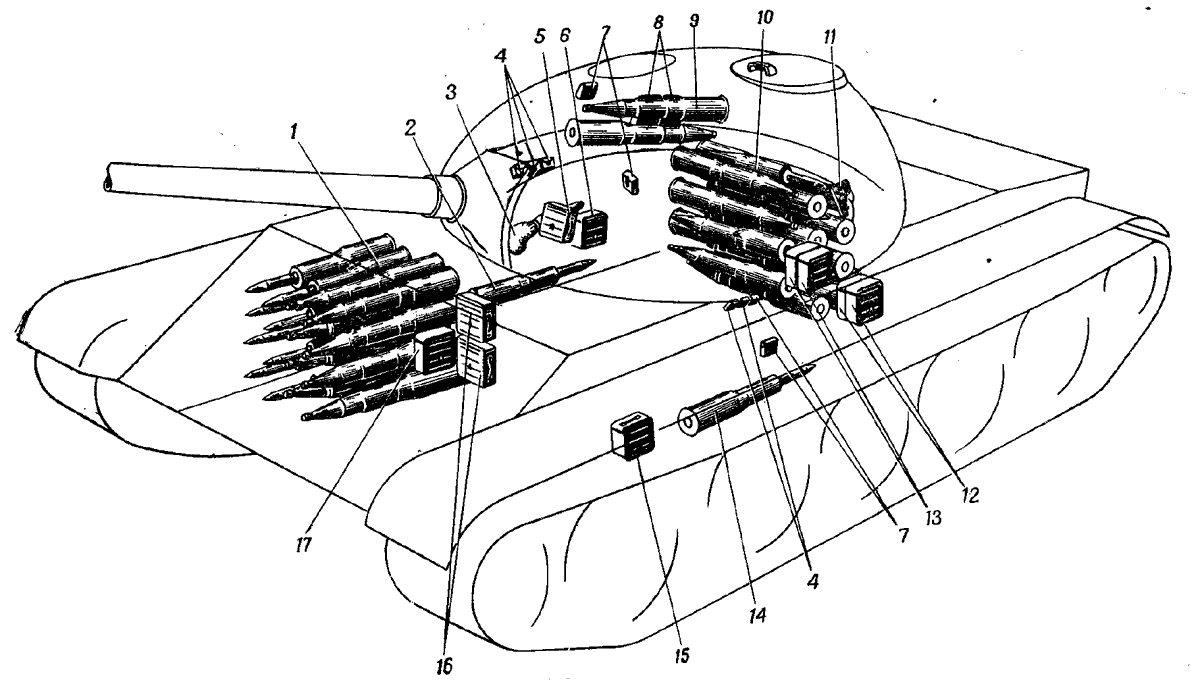
It's been speculated that Russia may seek to replace its battalion tactical group (BTG) armour losses by padding them out with reactivated T-62s. I don't think this sort of frontline use is likely, due to the tanks' vulnerabilities. They didn't perform well in Syria. /15 

Instead, Ukraine's General Staff say that the T-72s are to be used to equip reserve battalion tactical groups. I suspect they may be used in rear areas to reinforce checkpoints and suppress resistance - perhaps also to provide insurance against Ukrainian breakthroughs. /16 
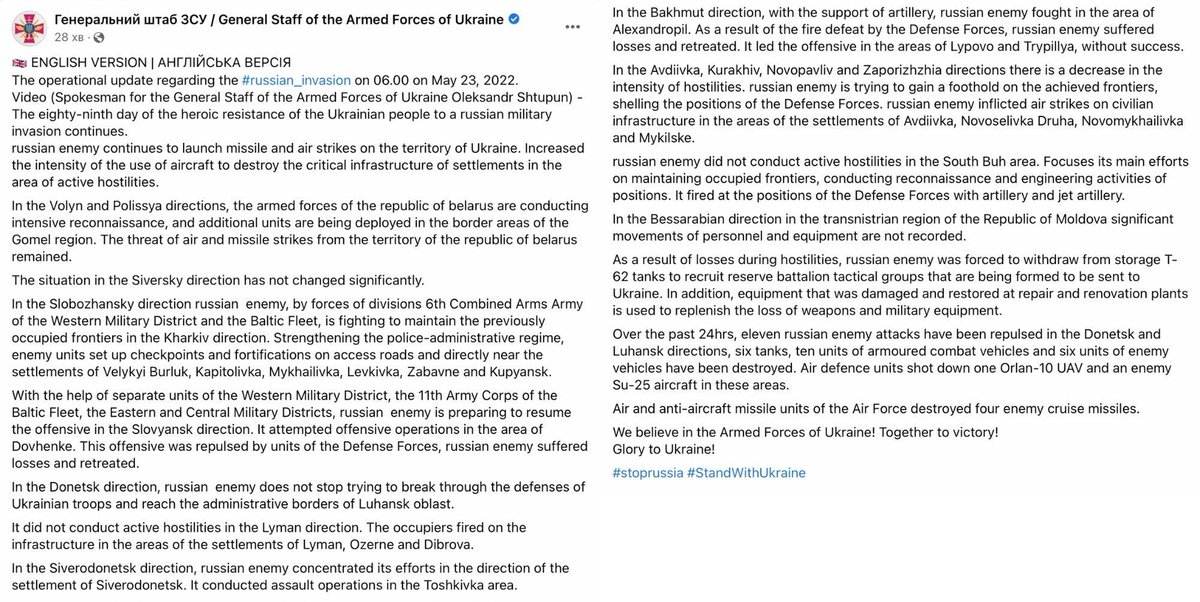
Even old tanks can still be formidable in such support roles. As old as the T-62 is, Russia may still nonetheless find it a useful asset in this war, albeit in a tightly limited capacity well away from Ukraine's arsenal of Javelins, NLAWs and Stugnas. /end
@OSINTEng @Militarylandnet @RALee85 @War_Mapper @Blue_Sauron @JominiW @Osinttechnical @oryxspioenkop @TrentTelenko @MarkHertling @DomNicholls @Nrg8000 @UAWeapons @TrueFactsStated @WarintheFuture @KofmanMichael @michaeldweiss @aravosis @JoshManning23 @general_ben @ian_matveev
T-62 deployment in Ukraine now confirmed with photos and video - see follow-on thread below:
https://twitter.com/ChrisO_wiki/status/1529517614975836162
• • •
Missing some Tweet in this thread? You can try to
force a refresh






